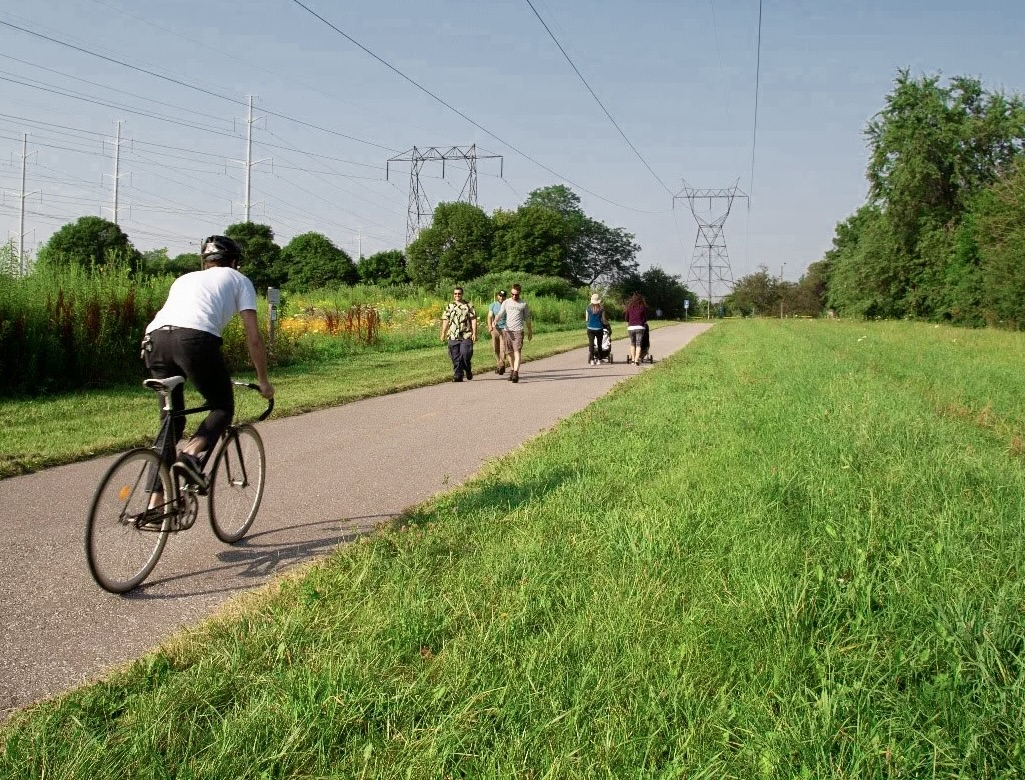Support strong Canadian climate journalism for 2025
Stretching from the Don River in downtown Toronto to Rouge National Urban Park, the second expansion phase of an urban linear park called Meadoway is about to begin.
When the transformation is complete, the 16-kilometre-long park and mixed-use trail along a hydro corridor in Scarborough will be one of Canada's largest urban parks.
It will create an interconnected route for people to travel from the Don River Ravine in downtown Toronto to Rouge National Urban Park in the eastern part of the city without the need to drive or take public transit. Along the way, the route will connect four ravines, 15 parks and 34 neighborhoods covering more than 200 hectares.
The project is led by the Toronto and Region Conservation Authority (TRCA) in partnership with the City of Toronto through the support of the Weston Family Foundation, the federal Natural Infrastructure Fund and Parks Canada.
According to the TRCA, the revitalization efforts will help support biodiversity and create a rich ecological habitat for more than 1,000 species of flora and fauna in what was once a degraded area.
"I'm very excited to hear about the second phase of revitalization of The Meadoway Park," said Festus Elumah, a resident of Scarborough. "The significance of having more green space in our environment cannot be overstated.” This initiative will attract more people to enjoy the outdoors while walking or cycling without encountering traffic or harming nature.
In April 2018, the Weston Family Foundation pledged $25 million for the project, to be rolled out in stages. Initially, $11 million was spent on Phase 1, which was embraced by the community. The project successfully engaged more than 10,000 community volunteers, who took part in more than 300 events to pitch in on improvements, according to a statement from the TRCA.
Now, the foundation will contribute $6.3 million over the next three years to support Meadoway’s second phase, according to a statement from the TRCA.
“The Weston Family Foundation is proud to support The Meadoway, a pioneering hydro corridor re-naturalization project which restores biodiversity, connects people to nature, and creates a more livable and vibrant community," said Garfield Mitchell, chair of the Weston Family Foundation. "This transformative initiative sets the stage for other cities to embrace a nature-inspired infrastructure, and we envision The Meadoway becoming the blueprint for a greener future.”
In 2023, the TRCA will complete construction of an existing two-kilometre gap at Highland Creek, connecting Military Trail at Ellesmere to Neilson Road. Funded by the city through the Natural Infrastructure Fund, construction to close two additional gaps will also begin this year, increasing the network by an additional 1.8 kilometres by 2025, the TRCA says. The remaining trail gaps require careful planning to navigate existing infrastructure, such as a rail corridor, and sensitive natural features. They are slated for design and construction in 2026 and beyond.
The transformation of the corridor will continue, resulting in the full restoration and continued maintenance of 101 hectares of meadow habitat. “The Meadoway is the kind of ecological-based community-building project TRCA is thrilled to be a part of,” said John MacKenzie, chief executive officer of the Toronto and Region Conservation Authority.
This story was produced in partnership with Journalists for Human Rights for the Afghan Journalists-in-Residence program funded by the Meta Journalism Project.






Comments
I'm sorry. What is described is decidedly_not_ a "natural space." It is bathed in harmful E-M fields, from one end to the other. I hope there is some other way of accessing the space..